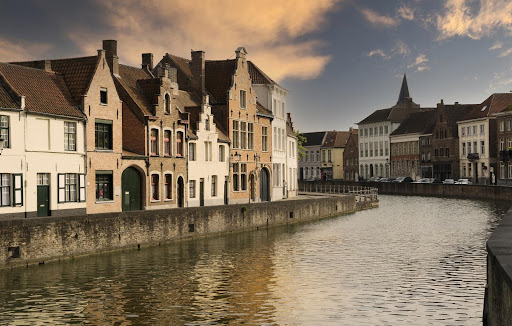Belgian traditions and stories are commonly linked to Dutch folklore due to their shared identities as the low countries and germanic heritage, along with the country’s strong ties to its neighbours due to its decentralised and occupied history. The rich lore and history here were traditionally written and spoken in Dutch, but French and other languages are found to contain traditional sources.
Themes In Folklore
Although a lack of evidence is found, a strong Celtic influence can be shown in Belgian and Dutch folklore due to their veneration of trees. Many tales are derived from Gaulic and Germanic pre-Christian culture.
Another key theme that can be observed in the Benelux is the flooding of cities and ‘lost cities’ hidden under the water due to the region being historically prone to devastating floods. A key example of this is the Saeftinghe legend, a Dutch tale.
Belgian Traditions
Despite its close connections to its Neighbours, Belgium has many unique and entertaining traditions rooted firmly in folklore.
The Ducasse, also known as the Parade of Giants, is held in the town of Ath and is based on the story of David and the goliath and traces its origins to the middle ages. effigies of two giants are paraded around the town, whilst onlookers throw coins at them for good luck.
Andenne holds an annual festival near easter called the “Bear Festival”. This celebrates Charles Martel‘s defeat of a bear who was terrorizing the region when he was young. Charles’ descendants are credited with founding the town of Andenne.
The Procession of The Holy Blood in Bruges is held on Ascension Day and a relic is paraded around the city. The relic, believed to have been found by Derick of Alsace during the Second Crusade, is said to hold a vial of the blood of Christ. Due to its significance as a Christian relic, the parade attracts roughly 50,000 visitors and pilgrims each year.
Another important Belgian tradition is the annual Ducasse de Mons, celebrated on Trinity Sunday in the town of Mons. The event is split into two halves: the celebration at Saint Waltrude’s Shrine, and the Lumeçon. The Lumeçon is the reenacted combat between Saint George and a dragon.
Belgian Myths And Legends
The Bokkenrijders
Buckriders are a part of Belgian and dutch folklore. they are demons or ghosts who rode on flying goats. during the 18th century, several groups of thieves used this myth to terrorise the inhabitants of Limburg by launching raids across the region using the name “Bokkenrijders”. Due to their ties to the occult, several men were falsely accused of being “Bokkenrijders” and were tortured or sent to death, much like the witch trials.
The Angels Of Mons
These angels are reported to have protected the outnumbered British army from invading german forces during the battle of Mons in world war 1. Many accounts of the battle range from phantom bowmen, angels, bright clouds or nothing at all.
Silvius Brabo
Silvius Brabo was a mythical soldier under the Roman empire who killed a giant and created the name, Brabant. The giant was called Druon Antigoon and forced people who wanted to cross a bridge on the river Scheldt. If the person didn’t pay, the giant would cut the hand off the person and throw it in the river. Silvius Brabo killed the giant and threw his hand in the river, and some speculate this also gave way to the name Antwerpen.
Written by Bernard de Laguiche

